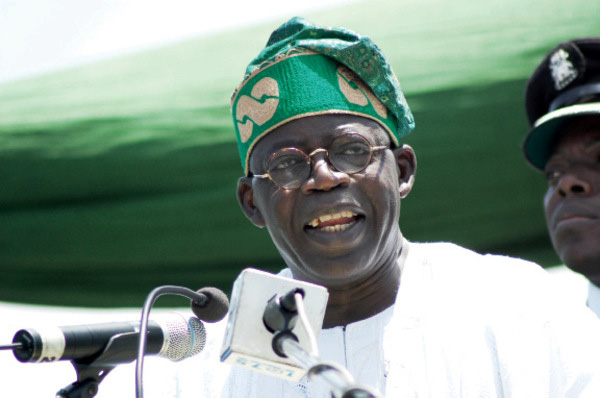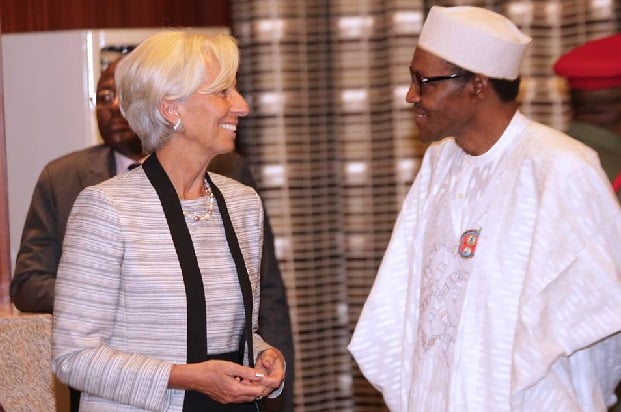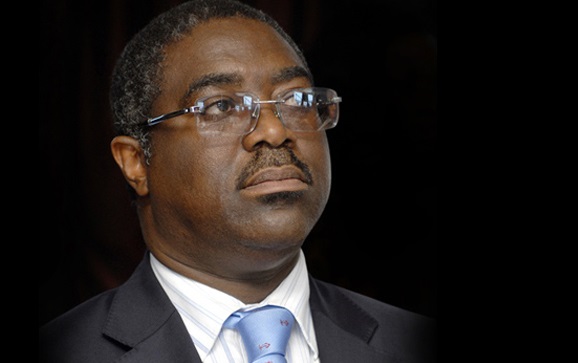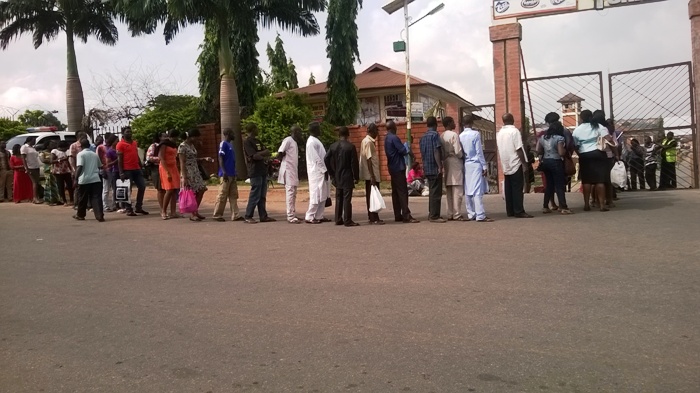I was out on Saturday 19th December 2015 to witness a citizen-inspired social intervention which strives to uplift lives and put smiles on people’s faces, a significant theme that encapsulates other lofty objectives of this humanitarian endeavour.
Of course, it is no overstatement that Nigeria is in dire straits. There are lots of indicators to affirm that the country is gasping for breath. Chief amongst Nigeria’s myriads of problems is the population of its poor. Even though the country is lax in record keeping and has so far produced convoluted statistics about the real picture of the have-nots in the land, the outcomes of the undertakings of various non-governmental organisations, and the refrain of the Nigerian Vice-President, Professor Yemi Osinbajo that 110 million Nigerians are living in extreme poverty, are enough evidences to validate any assumption of how bad it is for the majority in a country of 170 million people.
This unambiguously suggests that the deprived majority in Nigeria are living under less than $1.45 per day. Instructively, this further places a seal of authenticity on the conclusion of the recent World Bank’s development ranking and the statement of the World Bank President, Jim Yong Kim that Nigeria is one of the top five countries with the largest number of poor people.
Nigeria, according to the report, ranked third in the world while India ranked number one with 33 per cent of the world’s poor. China is ranked second with 13 per cent of the world’s poor, followed by Nigeria where seven per cent of the world’s poor live in. The globally reputable pro-poor institution affirmed that Bangladesh has six per cent share of the world’s poor while the Democratic Republic of Congo has five per cent.
Advertisement
Because of the total disconnect between the Nigerian rich, who are mostly in control of state power and the economy, and the hapless poor, it is quite convenient for the powers-that-be to overlook the predicament of the poor and downplay the danger of poverty in our midst. And that has been the case, mostly.
That said, the yuletide season, just like other similarly noted festivities, has a way of bringing the grim realities of hardship as experienced by the vast majority of the population to the fore. It is a period when the repulsive marks of social inequality and deprivation are made more obvious, and the pains of poverty are felt so profoundly by those under its stranglehold. Therefore it has always been an apposite time to re-echo the call for collective national attention to the horrible situations of those at the bottom of the societal pyramid.
Actually, the current troubled state of Nigeria’s economy, with the burgeoning rate of unemployment in the country suggests that the government, whose primary responsibility is the welfare and well-being of its people, is terribly incapacitated. So there isn’t a more critical time than now to draw the attention of and extract commitment from all well-meaning and privileged Nigerians to the plight of the poor amongst us.
Advertisement
Truly speaking, what I observed at the event paled my previous idea of the state of abject deprivation and gross inequality that exists in Nigeria into oblivion.
A few instances here will illustrate the shocking experience.
On that day, I actually went to honour the invitation of some friends who are the technical hands behind the operations of an annual non-religious and non-political act of selfless giving and caring. Every year, especially during the festivities of the predominant religions in Nigeria – Christianity and Islam – these competent, mostly young, administrators draw up an effective plan to deliver on the foundation’s mandate which is cheerful and impactful giving.
I arrived at Idowu Taylor Street, a highbrow location in Lagos state where the Christmas outreach programme was held, around 7am – the event was set to kick-off at 8am. To my surprise, however, I met a sea of heads behind the barricades at both ends of the street and that sea flowed into adjoining streets. I reliably gathered that most of those people, obviously in need of something to feed on during the yuletide, had been in the neighborhood since about 5am and had come from faraway places to get free food items from the foundation.
Advertisement
Many people may not have heard about the Bola Tinubu Foundation (BTF), perhaps because of the larger-than-life political stature, and influence of Bola Tinubu in Nigerian politics. But the objectives of the BTF, based on true altruism, are said to be Tinubu’s true and natural traits. And they predate his foray into politics. One of those objectives is to fight poverty within his immediate environment and beyond.
I must say that Tinubu has really got his job cut out for him on that front. I am however never in doubt that poverty can be drastically reduced in Nigeria and that people like Tinubu have an enormous role to play.
But this requires a rapid response. The alarming levels of poverty in our midst as exemplified by the sheer number of battered people that came for BTF’s hand-outs is genuine cause for concern. I learnt that unlike the previous years’ programme which provided for 3,000 people, this year’s event made provision for 4,000. Yet, it was inadequate. The people that turned up far exceeded the projection of the organisers.
Even more telling of how bad things have gotten in recent times is the appearance of few people who waited in line under the sun for hours to pick up a gift bag from BTF. Their looks almost betrayed the poverty that their presence in the crowd suggested. But they are indeed living in poverty. These people are unfortunately the “nouveau poor”. They are those who recently fell down the line into poverty perhaps due to bad businesses and current economic situation.
Advertisement
The BTF volunteers were moved to tears when one of them, a lady, saw her former school mate from one of the private universities in Nigeria on the queue. Not believing her eyes, she walked up to him only to confirm her fears. He was actually there with his mum and younger brother to get from the hand-outs on offer. Whatever may have caused a family that could send a son to a privately owned university, an action with gigantic financial implications, to be queuing for food stamps should trouble the conscience of both our leaders and the privileged citizens. I suppose this is the puzzle Bola Tinubu is striving to solve.
Admittedly, it’s a laudable stride and I hope Tinubu can do more, and can also influence the government to accelerate its policy on social security projects for the needy and the vulnerable. The fact that the BTF programme had, in almost equal proportion, people with disability, pregnant women and new mothers, the elderly, the unemployed youths and the hungry street-boys to cater for suggests the dangerous demographics of poverty in our midst.
Advertisement
As the volunteers and organisers stepped out of the Freedom House office of BTF to leave for their various homes, they couldn’t help but to watch their backs for fear of harassment or untoward behaviour from the crowd of people who couldn’t get the gifts due to the overwhelming population that turned out for the scheme.
And that passes a simple yet concise message.
Advertisement
We can only continue to ignore the poor at our own peril. And Nigeria desperately needs many entities like BTF on this critical mission.
Advertisement
Views expressed by contributors are strictly personal and not of TheCable.







